Welcome to our comprehensive guide on church practices, where we delve into the diverse rituals and traditions that shape the faith’s dynamics in the United States. From worship and liturgy to sacraments and ceremonies, we will explore the various facets of religious practices within different denominations. By understanding the significance of these rituals, we can gain deeper insights into the vibrant religious landscape in the US.
As we embark on this journey, we invite you to immerse yourself in the rich tapestry of church practices that define and strengthen faith communities. Discover the beauty of worship and the power of liturgy. Gain a deeper understanding of sacraments and ceremonies that symbolize spiritual transformation. Explore the joyous celebrations of Christian festivals and observances. Uncover the dynamics of church governance and leadership. Experience the sense of belonging and fellowship within the church community. And embrace the personal spiritual practices that nurture individual faith and connection with the divine.
Through this exploration, we hope to illuminate the profound impact that church practices have on individuals, communities, and society as a whole. Join us as we unravel the mysteries, traditions, and significance of these rituals, and gain a deeper appreciation for the faith that brings millions together across the United States.
Key Takeaways:
- Church practices encompass a wide range of rituals and traditions within religious communities.
- Worship and liturgy are integral components of many religious traditions, involving structured rituals such as prayers and hymns.
- Sacraments and ceremonies, such as baptism and the Eucharist, hold significant meaning in religious observance.
- Christian festivals and observances mark important events in the life of Jesus Christ and provide opportunities for reflection and deepening faith.
- Church governance and leadership structures vary among different denominations and play crucial roles in spiritual guidance and community connection.
Church Practices Overview
Church practices encompass a wide range of activities and rituals conducted within religious communities. These practices are deeply rooted in religious traditions and shape the beliefs and values of faith communities. They serve as a means for individuals to connect with the divine and foster a sense of belonging within their religious community.
One of the central aspects of church practices is worship and liturgy. Worship services provide opportunities for individuals to come together and express their devotion through prayer, music, and scripture readings. Liturgical practices, such as the sacraments, follow a prescribed order and include rituals like baptism and communion, which hold significant meaning for believers. church rituals
Christian festivals and observances also play a crucial role in church practices. These events mark important milestones in the life and teachings of Jesus Christ. From Advent and Christmas, which celebrate his birth, to Lent and Easter, which commemorate his death and resurrection, these festivals provide believers with opportunities for reflection, spiritual growth, and reaffirmation of their faith.
Church Practices Overview
Church practices encompass a wide range of activities and rituals conducted within religious communities. These practices are deeply rooted in religious traditions and shape the beliefs and values of faith communities. They serve as a means for individuals to connect with the divine and foster a sense of belonging within their religious community.
One of the central aspects of church practices is worship and liturgy. Worship services provide opportunities for individuals to come together and express their devotion through prayer, music, and scripture readings. Liturgical practices, such as the sacraments, follow a prescribed order and include rituals like baptism and communion, which hold significant meaning for believers. church traditions
Christian festivals and observances also play a crucial role in church practices. These events mark important milestones in the life and teachings of Jesus Christ. From Advent and Christmas, which celebrate his birth, to Lent and Easter, which commemorate his death and resurrection, these festivals provide believers with opportunities for reflection, spiritual growth, and reaffirmation of their faith.
| Church Practices Overview | Worship and Liturgy | Sacraments and Ceremonies | Christian Festivals and Observances |
|---|---|---|---|
| Encompass a wide range of activities and rituals | Central to church practices | Hold significant meaning | Mark important milestones |
| Rooted in religious traditions | Provide opportunities for devotion | Prescribe rituals | Provide opportunities for reflection |
| Shape beliefs and values | Include prayer, music, and scripture readings | Symbolize spiritual transformation | Reaffirm faith |
Worship and Liturgy
Worship rituals and liturgical traditions are fundamental aspects of many religious practices. They provide a structured and communal way for believers to express their devotion, connect with the divine, and deepen their faith. Worship typically involves a combination of prayer practices, church music and hymns, readings from sacred texts, and other ritualistic elements that vary across different denominations and faith traditions. baptism rites
Prayer practices hold a central place in worship, allowing individuals to communicate with the divine, seek guidance, and offer gratitude. Whether it’s reciting traditional prayers, engaging in spontaneous or personal prayers, or participating in group prayer sessions, prayer is seen as a powerful means to establish a connection with the divine and find solace in times of joy or hardship.
Church music and hymns also play a significant role in worship. They serve as a source of inspiration, foster a sense of unity and collective identity, and create a reverential atmosphere. Hymns often contain rich theological and spiritual themes, and their melodies and lyrics can evoke strong emotions, uplift spirits, and facilitate a deeper engagement with the worship experience.
The Power of Music in Worship
“Music is a universal language. It has the power to transcend boundaries, touch our souls, and bring us closer to the divine. When we sing hymns together as a congregation, we create a beautiful harmony that reflects the diversity and unity of our faith community.”
Liturgical traditions encompass the rituals, symbols, and practices that are associated with specific religious ceremonies. These traditions often have deep historical and theological significance, and they help to create a sense of continuity and connection with the past. Examples of liturgical traditions include the use of incense, processions, specific gestures or postures during prayer, and the observance of special seasons like Advent or Lent.
Sacraments and Ceremonies
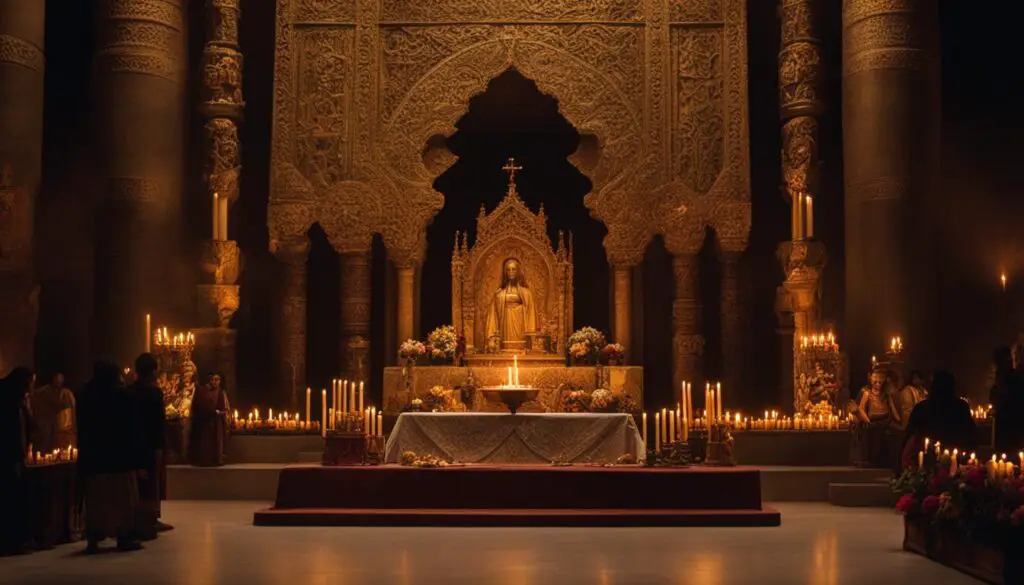
Sacraments and ceremonies hold profound significance within many religious practices. They serve as sacred rituals that symbolize spiritual transformation and unity within the faith community. Let’s explore some of the key sacraments and ceremonies observed in various churches. eucharist celebrations
Baptism Rites
“Baptism is the door to the spiritual life and the gateway to the sacraments.”
Baptism is a fundamental sacrament in Christianity, representing the initiation into the Christian faith. It involves the symbolic washing away of sins and the entrance into a new life in Christ. Different denominations have their own practices regarding baptism, such as infant baptism or believer’s baptism. church hierarchies
Eucharist Celebrations
“Take, eat; this is my body which is given for you.”
The Eucharist, also known as Holy Communion or the Lord’s Supper, is a sacrament commemorating the Last Supper of Jesus Christ with his disciples. It involves the sharing of bread and wine, symbolizing the body and blood of Christ. This sacrament is central to Christian worship and serves as a remembrance of Christ’s sacrifice and the unity of believers.
Church Ceremonies
“Marriage is a sacrament in which two people are united in Christ.”
Church ceremonies encompass various rituals and celebrations that mark significant events in the lives of believers. This includes marriage ceremonies, where couples enter into a sacred covenant before God and the faith community. Additionally, funerals provide an opportunity to honor and celebrate the lives of those who have passed away, offering comfort and support to grieving families.
These sacraments and ceremonies play an integral role in the religious practices of many churches. They not only signify important spiritual milestones but also foster a sense of community and connection among believers. religious festivals
Christian Festivals and Observances

Christian festivals and observances hold a special place in the hearts of believers, as they commemorate significant events in the life of Jesus Christ and hold deep spiritual meaning. These celebrations provide opportunities for reflection, worship, and a renewed sense of faith. Among the most prominent Christian festivals are Advent and Christmas, Lent, and Easter.
Advent, which begins on the fourth Sunday before Christmas, marks the season of anticipation and preparation for the birth of Christ. It is a time of reflection, prayer, and lighting of the Advent wreath, symbolizing the coming of the light of Christ into the world. reformation history
Lent is another significant observance in the Christian calendar. It is a season of repentance, reflection, and self-denial that lasts for forty days, excluding Sundays, leading up to Easter. During this time, believers may engage in fasting, prayer, and acts of charity, seeking spiritual renewal and deepening their connection with God.
Easter, the most important celebration in Christianity, commemorates the resurrection of Jesus Christ. It is a time of joy and hope, marking the triumph of life over death. Christians gather for worship services, participate in special liturgies, and engage in traditions such as Easter egg hunts and sharing meals with loved ones.
These festivals and observances serve as reminders of the central message of the Christian faith and provide opportunities for believers to deepen their relationship with God and their understanding of His love and grace.
Church Governance and Leadership
Church governance and leadership play vital roles in the operation and guidance of religious communities. Within the context of church practices, these roles involve overseeing the administrative functions of the church, providing spiritual guidance, and facilitating evangelism and outreach efforts.
At the core of church governance is a structure that varies among different denominations and faith communities. This structure usually includes roles such as pastors, priests, deacons, and elders, who are responsible for ensuring the smooth functioning of the church and nurturing the spiritual well-being of its members.
These leaders not only provide pastoral care and support but also contribute to the development and implementation of church policies and initiatives. They often serve as a bridge between the congregation and the wider community, fostering connections and creating opportunities for evangelism and outreach.
| Church Leadership Roles | Pastoral Duties | Evangelism and Outreach |
|---|---|---|
| Pastor | – Preaching sermons – Officiating sacraments – Providing spiritual guidance |
– Organizing community events – Engaging with local organizations – Sharing the message of faith |
| Priest | – Presiding over liturgical ceremonies – Administering sacraments – Offering spiritual counsel |
– Leading mission trips – Collaborating with other religious leaders – Supporting social justice initiatives |
| Deacon | – Assisting with worship services – Ministering to the needs of the congregation – Overseeing charitable activities |
– Coordinating service projects – Reaching out to marginalized communities – Providing support to the vulnerable |
| Elder | – Providing guidance to the congregation – Participating in decision-making processes – Preserving the church’s traditions |
– Developing strategies for community engagement – Establishing partnerships with local organizations – Promoting interfaith dialogue |
Through their diverse roles and responsibilities, church leaders contribute to the overall spiritual growth and well-being of their communities. They guide and inspire members to live out their faith in meaningful ways, fostering a sense of unity and purpose within the church.
Next, we will explore the importance of community and fellowship in the church, highlighting how these practices contribute to a sense of belonging and foster acts of compassion and service.
Community and Fellowship in the Church
Community and fellowship are at the heart of church practices, fostering a sense of belonging, support, and connection among its members. In the Christian community, believers come together to worship, engage in charitable activities, and build relationships that extend beyond the walls of the church.
One of the primary purposes of the church is to provide a space where individuals can find a sense of community. Through shared beliefs and values, church members support one another in their spiritual journeys. This fellowship often extends to offering emotional and practical support during challenging times, creating a strong sense of solidarity among believers.
Charitable activities are also an essential aspect of community engagement within the church. Churches often organize initiatives to serve those in need, whether it be through food drives, clothing donations, or outreach programs. These charitable activities not only offer assistance to the vulnerable but also allow church members to put their faith into action, demonstrating compassion and love for others.
“The church is called to be the hands and feet of Christ, to reach out to the world and make a difference,” emphasizes Pastor Sarah Johnson. “Through acts of service and kindness, we aim to reflect God’s love and care for all.”
The transformative power of community and fellowship within the church is often evident in the bonds formed through shared experiences and support. By coming together, believers create a safe and nurturing environment where they can grow in their faith, find encouragement, and develop lasting friendships. The Christian community becomes a place where individuals can find acceptance, love, and a true sense of belonging.
Table: Examples of Charitable Activities in the Christian Community
| Charitable Activity | Description |
|---|---|
| Food Pantry | Churches operate food pantries to provide groceries and meals to individuals and families facing food insecurity. |
| Clothing Drive | Churches collect and distribute clothing to those in need, ensuring that individuals have access to suitable attire. |
| Homeless Outreach | Church members engage in activities such as providing shelter, meals, and support to the homeless population in their communities. |
| Community Service Projects | Churches organize various community service initiatives, such as park clean-ups, school supply drives, and neighborhood beautification projects. |
| Mission Trips | Churches send teams to serve in different parts of the world, providing medical assistance, building homes, and sharing the message of faith. |
| Prison Ministry | Church members offer spiritual support, mentoring, and guidance to individuals incarcerated in prisons or detention centers. |
Personal Spiritual Practices
In addition to the communal aspects of church practices, personal spiritual practices play a crucial role in nurturing individual faith and connection with the divine. These practices form the foundation for personal devotion and growth, allowing individuals to deepen their understanding of their beliefs and develop a closer relationship with God.
Spiritual Disciplines
One of the key components of personal spiritual practices is engaging in spiritual disciplines. These disciplines, such as prayer, meditation, and scripture study, provide individuals with dedicated time for reflection and communion with the divine. Prayer allows believers to communicate their thoughts, concerns, and gratitude to God, while meditation encourages inner stillness and connection with the sacred. Scripture study offers an opportunity to explore and understand the teachings and wisdom found in religious texts, nurturing spiritual growth.
Bible Study
Bible study is a fundamental personal spiritual practice for many Christians. It involves reading, reflecting upon, and analyzing the scriptures to gain a deeper understanding of God’s word. Through bible study, believers can explore the historical context, symbolism, and profound messages contained within the scriptures, enhancing their knowledge of their faith and providing guidance for their daily lives.
Christian Retreats
Participation in Christian retreats is another valuable personal spiritual practice. These retreats provide a dedicated time away from the busyness of everyday life to focus on spiritual introspection, growth, and renewal. Christian retreats often offer a variety of activities such as workshops, worship services, and guided meditation, all aimed at deepening one’s connection with God and fostering spiritual transformation.
Overall, personal spiritual practices encompass a wide range of disciplines, including prayer, meditation, scripture study, and participation in Christian retreats. These practices provide individuals with the opportunity to nurture their faith, deepen their relationship with the divine, and seek spiritual growth on a personal level.
Church History and Traditions
The history of the church and its traditions is a fascinating journey that spans centuries and encompasses diverse religious movements. From the early beginnings of Christianity to the splintering during the Reformation and the subsequent development of various denominations, the history of the church provides valuable insights into the evolution of religious practices and beliefs.
One significant event in church history is the Protestant Reformation, which took place in the 16th century. This period marked a shift from the dominant Catholic Church to the emergence of Protestantism, led by reformers such as Martin Luther and John Calvin. The Reformation was a catalyst for changes in religious practices and challenged the authority and doctrines of the Catholic Church, resulting in the establishment of new denominations that emphasized individual interpretation of scriptures.
While Protestantism and Catholicism are the two most well-known branches of Christianity, there are also other significant traditions, such as Eastern Orthodoxy. Eastern Orthodoxy traces its roots back to the early Christian church and has distinct practices and theological beliefs that differ from Western Christianity. Byzantine traditions, art, and rituals are integral to the Eastern Orthodox Church and contribute to its unique identity.
Understanding the history and traditions of the church allows us to appreciate the cultural, theological, and spiritual diversity within Christianity. It sheds light on the factors that have shaped different denominations and deepens our understanding of the beliefs and practices that continue to influence religious communities today.
The Reformation: A Turning Point in Church History
“I cannot and will not recant anything, for to go against conscience is neither right nor safe. Here I stand, I can do no other, so help me God. Amen.” – Martin Luther
The Reformation, led by figures like Martin Luther, brought about a seismic shift in the religious landscape of Europe. It was a period of intense theological debates, challenging the authority of the Catholic Church, and advocating for reform based on biblical principles. The Reformation led to the formation of new Christian denominations, such as Lutheranism and Calvinism, which emphasized the priesthood of all believers and the authority of scripture.
One of the key teachings of the Reformation was the doctrine of justification by faith alone, which emphasized salvation through faith in Christ rather than through the sacraments and good works prescribed by the Catholic Church. This groundbreaking idea paved the way for a more personal and direct relationship with God, empowering individuals to interpret the Bible for themselves.
As a result of the Reformation, various Protestant denominations emerged, each with its own distinct practices and theological perspectives. Today, Protestantism encompasses a wide range of traditions, from the vibrant worship services of Pentecostal churches to the sacramental practices of Anglicanism.
The Reformation not only shaped the history of the church but also had a profound impact on the broader social, political, and cultural developments of the time. It challenged long-standing power structures, influenced the spread of literacy through the translation of the Bible into vernacular languages, and paved the way for the emergence of modern nation-states.
| Denomination | History | Distinctive Practices |
|---|---|---|
| Protestantism | Emerging during the Reformation, Protestantism encompasses various denominations, including Lutheranism, Calvinism, and Anglicanism. | Emphasis on scripture, justification by faith alone, and individual interpretation of the Bible. |
| Catholicism | Catholicism traces its roots back to the early Christian church, with its distinct hierarchy and sacramental practices. | Central role of the Pope, seven sacraments, and the veneration of saints and Mary. |
| Eastern Orthodoxy | East Orthodoxy has its origins in the ancient Christian church and developed independently of Western Christianity. | Byzantine liturgical traditions, emphasis on mystical theology, and iconography. |
Church Icons and Symbolism
In many religious traditions, church icons and symbolism hold deep spiritual significance. Icons are visual representations of saints, biblical figures, or sacred scenes that serve as focal points for veneration and spiritual connection. These sacred images are believed to embody the presence of the divine and serve as objects of devotion and contemplation.
The Divine Liturgy
One of the most important rituals in the Christian church is the Divine Liturgy, also known as the Eucharist or Holy Communion. This sacramental service is rich in symbolism and represents the central act of worship for many denominations. During the Divine Liturgy, the bread and wine are consecrated and believed to become the body and blood of Jesus Christ, symbolizing the spiritual nourishment and unity of believers with the divine.
“Icons are not simply decorative images; they are considered windows to heaven, channels of divine grace, and aids to prayer and contemplation.”
The Symbolism of Colors, Gestures, and Objects
In addition to icons, churches often utilize symbolism through colors, gestures, and objects within their worship spaces. Different colors hold symbolic meaning, such as white representing purity and joy, while red symbolizes the blood of Christ and martyrdom. Gestures like crossing oneself or bowing express reverence and humility, while objects such as candles, incense, and the Christian cross carry deep religious significance.
Overall, church icons and symbolism enhance the worship experience by invoking a sense of sacredness and providing visual aids for contemplation and devotion. They reinforce the teachings and traditions of each faith community, deepening the spiritual connection between individuals and the divine.
Church Management and Administration
The smooth operation of a religious community relies on effective church management and administration. This entails overseeing various administrative processes, managing resources, and ensuring financial stewardship. Church leaders and committees play vital roles in maintaining the infrastructure and organizational aspects of the faith community.
Church management involves handling day-to-day operations, such as maintaining facilities, coordinating events, and managing volunteers. Administrative processes, including record keeping, scheduling, and communication, are crucial for maintaining efficient church operations. Additionally, financial stewardship is essential to ensure the responsible management of financial resources, including budgeting, fundraising, and accounting.
Table: Church Management and Administration
| Church Management | Administrative Processes | Financial Stewardship |
|---|---|---|
| Facilities maintenance | Record keeping | Budgeting |
| Event coordination | Scheduling | Fundraising |
| Volunteer management | Communication | Accounting |
Effective church management and administration ensure that the practical aspects of running a religious community are well-coordinated and organized. This allows church leaders and members to focus on fulfilling their spiritual and pastoral duties, fostering a thriving and supportive environment for worship, fellowship, and outreach.
Pastoral Duties and Sermon Preparation
One of the key responsibilities of clergy members is to fulfill their pastoral duties, providing spiritual care, guidance, and support to their congregations. This involves being a source of comfort during times of crisis, offering counsel and encouragement, and nurturing the faith of their community members. Pastoral duties extend beyond the pulpit and encompass the day-to-day interactions and connections made with individuals seeking spiritual guidance and support.
Sermon preparation is an integral part of a clergy member’s role. Through careful study of biblical teachings, clergy craft sermons that inspire, challenge, and teach. Sermons serve as a means to convey the message of faith and bring the Word of God to life for their congregation. They provide an opportunity to explore scripture, interpret its relevance to everyday life, and facilitate spiritual growth among believers.
Sermon preparation involves prayerful contemplation, in-depth scriptural study, and thoughtful reflection. Clergy members often draw on their theological training, personal experiences, and the needs of their congregation to develop sermons that are both relevant and impactful. By crafting messages that address the spiritual, emotional, and practical aspects of life, clergy members aim to inspire their congregation to live out their faith in tangible ways.
Table: Sermon Preparation Process
| Step | Description |
|---|---|
| 1 | Selecting a Scripture Passage |
| 2 | Studying the Passage |
| 3 | Researching Context and Historical Background |
| 4 | Prayer and Reflection |
| 5 | Developing the Sermon Outline |
| 6 | Writing the Sermon |
| 7 | Rehearsing and Refining |
| 8 | Delivering the Sermon |
Sermon preparation is both a task of careful study and a spiritual practice. It requires clergy members to dive deep into biblical teachings, draw inspiration from the divine, and effectively communicate the message of faith to their congregation. Through their dedicated efforts in pastoral duties and sermon preparation, clergy members play a vital role in guiding and nurturing the spiritual well-being of their community.
Christian Fellowship and Outreach
In addition to fostering community and providing support, Christian fellowship and outreach activities play a crucial role in spreading the message of love, compassion, and faith. These activities aim to connect with individuals outside the church, bringing them closer to the Christian community and the teachings of Christ. Through fellowship and outreach, believers have the opportunity to make a positive impact on the lives of others, sharing the transformative power of their faith.
Christian fellowship creates an environment where individuals can come together to build relationships, share experiences, and grow spiritually. It often involves regular gatherings, such as small group meetings, Bible studies, or social events, where believers can connect with one another on a deeper level. These fellowship activities provide a sense of belonging and support, nurturing the spiritual development of each individual within the community.
Evangalism and outreach, on the other hand, involve actively reaching out to the wider community with the aim of sharing the Christian message. This can take many forms, including volunteering in local community projects, organizing charity events, or participating in missions both locally and abroad. By engaging in acts of service and extending love and compassion to those in need, Christians demonstrate the core values of their faith and provide tangible expressions of God’s love to others.
Examples of outreach activities:
- Community service projects
- Homeless shelter volunteer work
- Prison ministry
- Medical mission trips
Through Christian fellowship and outreach, believers not only strengthen their own faith but also impact the lives of others, spreading the love and message of Christ to those in need. By engaging in these activities, the church becomes a beacon of hope and an instrument of positive change in the world.
Personal Spiritual Development
Personal spiritual development is a lifelong journey of exploring and deepening one’s relationship with the divine. It encompasses various practices and experiences that foster spiritual growth, faith formation, and a deeper understanding of one’s beliefs and values. By engaging in these practices, individuals can cultivate a more profound connection with their spirituality, ultimately leading to a sense of purpose, peace, and fulfillment.
A key aspect of personal spiritual development is striving for spiritual growth. This involves seeking opportunities for self-reflection, introspection, and continuous learning. By engaging in practices such as prayer, meditation, and scripture study, individuals can nurture their spiritual well-being and develop a deeper understanding of their faith.
Another essential component of personal spiritual development is faith formation. This entails actively shaping and cultivating one’s beliefs and values based on personal experiences, teachings, and spiritual insights. It involves exploring different aspects of one’s faith, asking questions, and seeking answers that resonate with personal beliefs and values.
Overall, personal spiritual development is a dynamic and individualized process that requires openness, curiosity, and a willingness to explore and grow. By actively engaging in practices that promote spiritual growth and faith formation, individuals can embark on a transformative journey that enhances their connection with the divine and enriches their overall well-being.
Table: Practices for Personal Spiritual Development
| Practice | Description |
|---|---|
| Prayer | A practice of communicating with the divine, expressing gratitude, seeking guidance, and fostering a sense of connection. |
| Meditation | A practice of mindfulness and stillness, enabling individuals to quiet their minds, focus their thoughts, and deepen their spiritual awareness. |
| Scripture Study | Engaging in the study and reflection of sacred texts, seeking wisdom, guidance, and inspiration from the teachings within. |
| Spiritual Retreats | Taking dedicated time away from daily routines to immerse oneself in a spiritual environment, engage in contemplation, and rejuvenate the spirit. |
| Journaling | Recording thoughts, feelings, experiences, and spiritual insights in a journal to foster self-reflection and gain a deeper understanding of one’s spiritual journey. |
| Seeking Spiritual Mentors | Connecting with individuals who have expertise and wisdom in one’s faith tradition to receive guidance, support, and inspiration. |
These practices serve as a foundation for personal spiritual development, providing individuals with tools and opportunities to cultivate their spirituality and deepen their connection with the divine. It is important to remember that personal spiritual development is a unique and personal journey, and individuals may find resonance in different practices based on their individual preferences and beliefs.
Conclusion
This article has explored various aspects of church practices, highlighting the rituals, traditions, and dynamics within different religious communities. By examining these practices, it becomes evident that they play a significant role in shaping beliefs, fostering community, and nurturing individual spirituality.
From the overview of church practices to the significance of worship and liturgy, sacraments and ceremonies, Christian festivals and observances, church governance and leadership, community and fellowship, and personal spiritual practices, we have gained a comprehensive understanding of the diverse ways in which faith is practiced in the United States.
Church practices bring people together in worship, provide opportunities for spiritual growth and reflection, and establish connections with the divine. They serve as the backbone of religious communities, promoting unity, social engagement, and acts of service. Whether through personal devotion, participation in sacraments, or celebration of festivals, these practices contribute to the vibrant and dynamic nature of faith in the US.
FAQ
What are church practices?
Church practices refer to a wide range of activities and rituals conducted within religious communities, including worship services, liturgical practices, sacraments, and adherence to biblical teachings.
What is worship and liturgy?
Worship and liturgy are structured rituals performed within a religious community, involving prayers, hymns, and readings. Different denominations have unique worship styles and liturgical traditions that shape the worship experience.
What are sacraments and ceremonies in the church?
Sacraments are sacred rituals, such as baptism and the Eucharist, that symbolize spiritual transformation and unity within the faith community. Church ceremonies, such as weddings and funerals, also play important roles in religious observance.
What are Christian festivals and observances?
Christian festivals and observances commemorate significant events in the life of Jesus Christ, such as Advent and Christmas (birth), Lent and Easter (death and resurrection). These festivals provide opportunities for believers to deepen their faith.
How does church governance and leadership work?
Church governance and leadership involve roles like pastors, priests, deacons, and elders, who provide spiritual guidance and oversee administrative functions. They also facilitate evangelism and outreach efforts to engage with the wider community.
How does the church foster community and fellowship?
The church serves as a place where individuals come together to worship, support one another, and engage in charitable activities. These practices foster a sense of belonging, promote social connections, and encourage acts of service and compassion.
What are personal spiritual practices?
Personal spiritual practices include prayer, meditation, scripture study, and personal devotion. Christian retreats also provide dedicated time for introspection, reflection, and spiritual growth.
Why is church history important?
Understanding the historical development of different denominations, such as Protestantism, Catholicism, and Eastern Orthodoxy, helps contextualize their beliefs, practices, and traditions, shedding light on the diverse ways in which churches have evolved over time.
What is the significance of church icons and symbolism?
Icons are visual representations of saints and biblical figures, serving as a means of reverence and connection to the divine. Symbolism, such as the use of colors, gestures, and objects, enhances the spiritual experience during worship.
How are church management and administration handled?
Effective church management involves overseeing administrative processes, managing resources, and ensuring financial stewardship. Church leaders and committees play vital roles in maintaining the infrastructure and organizational aspects of the faith community.
What are pastoral duties?
Pastoral duties encompass the responsibilities of clergy in providing spiritual care, guidance, and support to their congregations. This includes sermon preparation, where clergy deliver teachings and messages based on biblical texts to nurture the faith of their community members.
What is Christian fellowship and outreach?
Christian fellowship and outreach activities focus on building connections within the faith community and reaching out to those outside the church. These activities foster a sense of community, provide support and encouragement, and share the Christian message of love and compassion.
How does personal spiritual development occur?
Personal spiritual development involves spiritual growth, faith formation, and continuous learning about one’s beliefs and practices. Individuals engage in activities like attending retreats, participating in spiritual formation programs, and seeking spiritual mentors to nurture their faith.







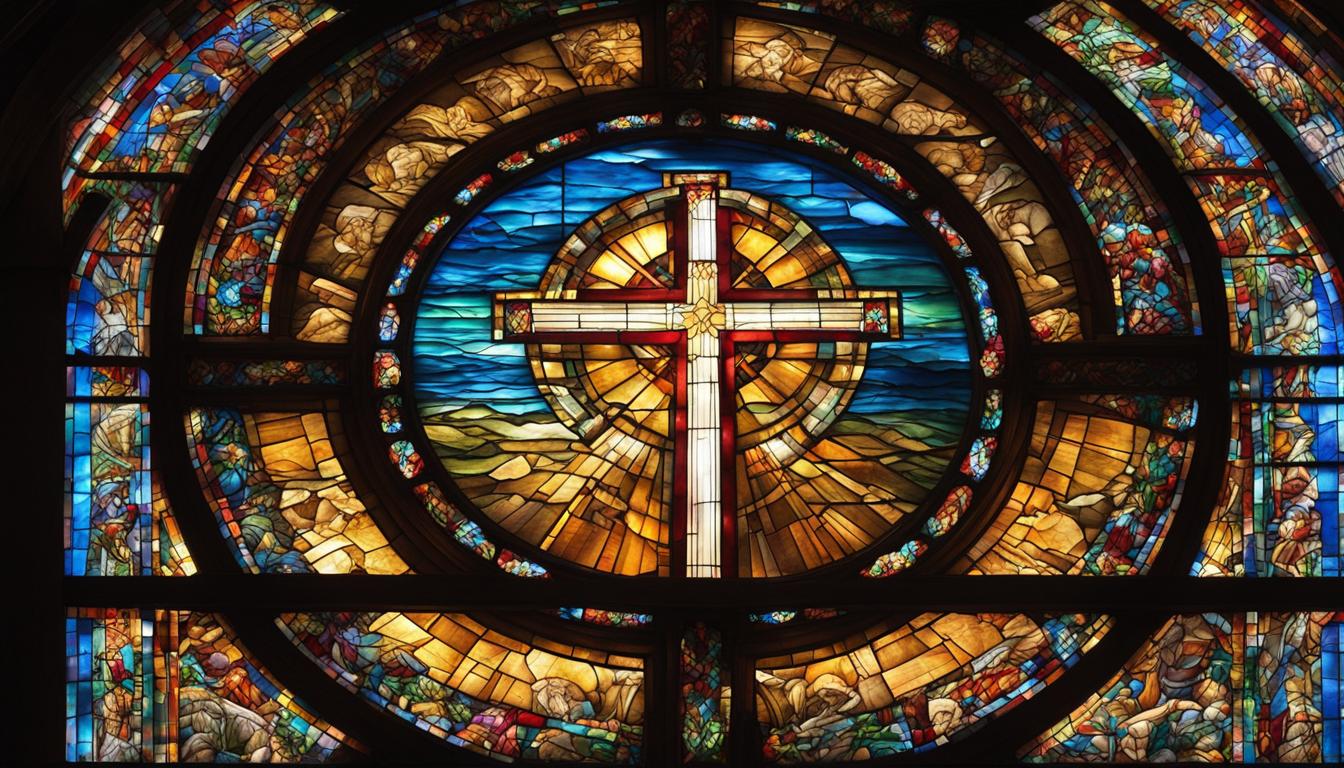
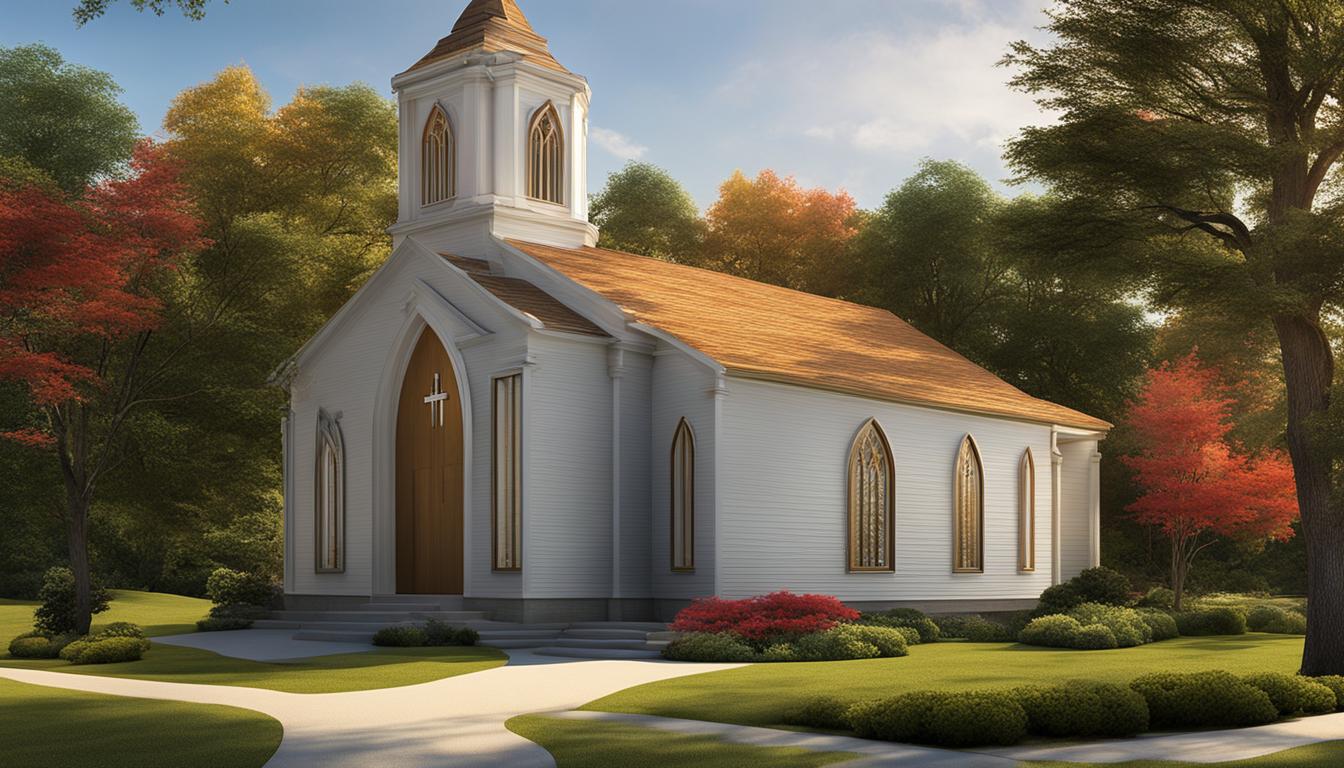




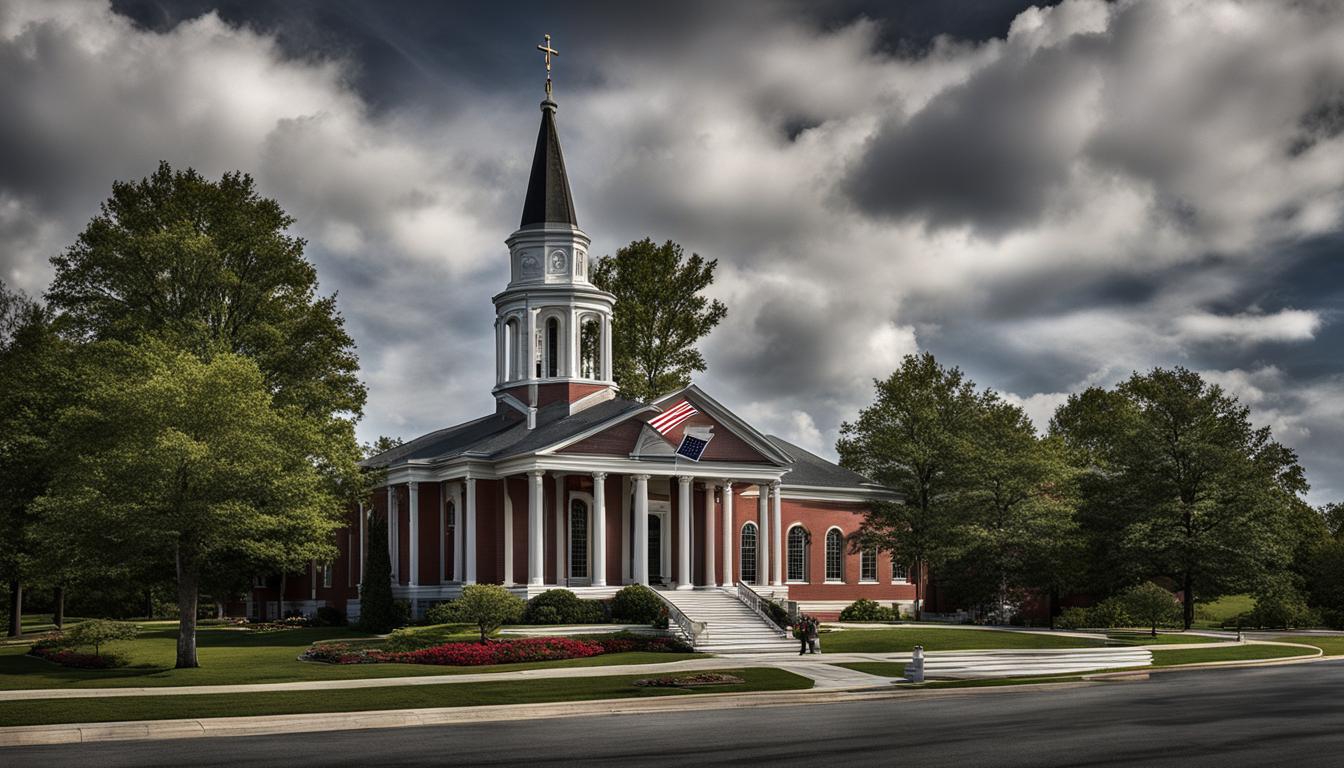

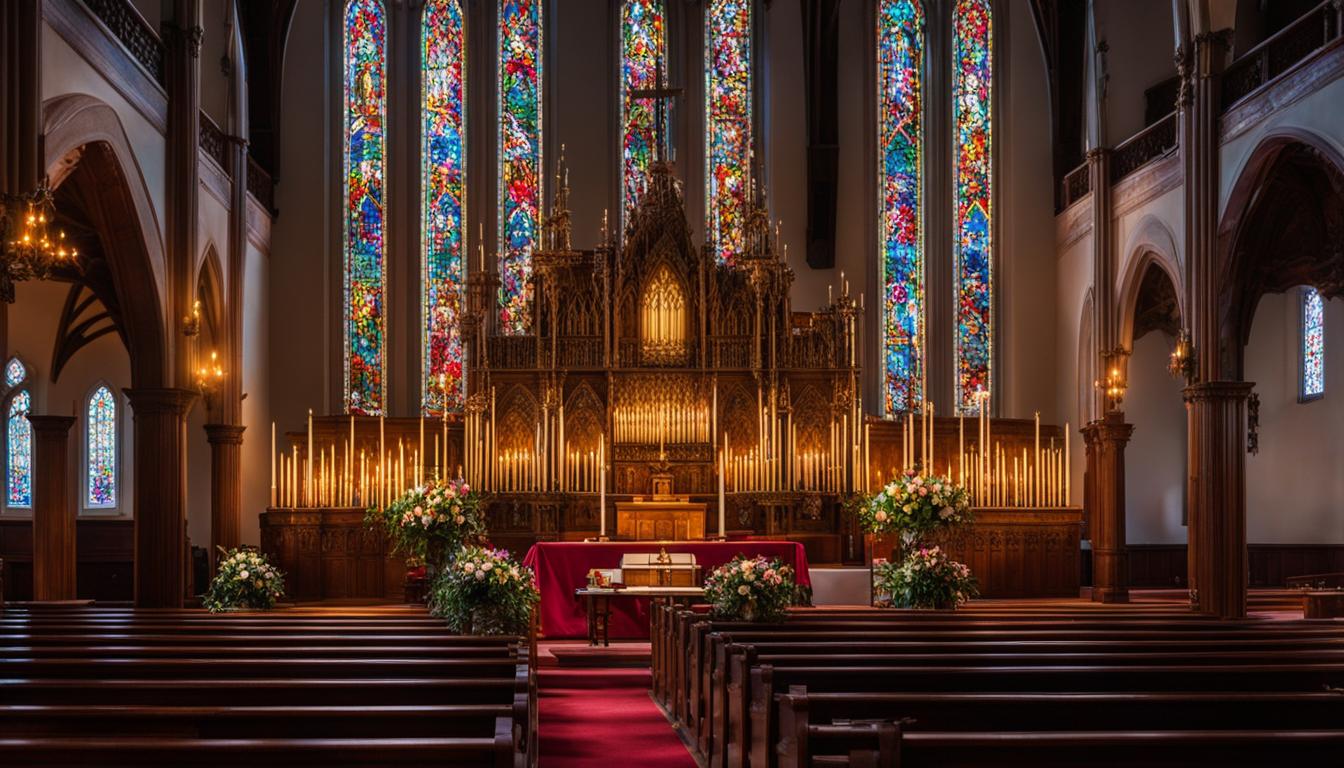

https://ddnews.co.kr/blog/2021/08/23/카카오톡-pc버전-다운로드/
전신스타킹
수원출장샵
대전세븐나이트
A. 카카오택시 앱을 실행한 후 ‘예약’ 탭을 누르시면 됩니다. 이후 출발 위치, 도착 위치, 탑승 시간 등을 입력하고 ‘예약하기’를 누르시면 예약이 완료됩니다. 다음 사이트에서 섹스 비디오를 시청하세요 강남출장섹스마사지
영등포안마살롱
대전세븐나이트
이태원게이바
거제출장안마
대전나이트클럽
https://pornmaster.fun/hd/上海嘉定区找小姐价格薇信1646224上海嘉定区找小姐价格上海嘉定区找小姐大保健按摩特殊服务▷上海嘉定区找小姐学生妹过夜上门按摩服务-dxht
수원출장샵
충무로출장업소
https://www.pepperboy.kr/2023/02/autooff-download.html
대전세븐나이트
https://www.pepperboy.kr/2023/03/alcapture-download.html
안성출장마사지
안성출장마사지
https://nicesongtoyou.com/welfare/middle-aged/
청도페이스라인출장
https://acase.co.kr/17
이태원스웨디시안마게이클럽
https://info.channel.seoul.kr/news/1093
https://dday.tistory.com/1115
https://nicesongtoyou.com/job/byeolugsijang-newspaper
https://film35.tistory.com/45
https://kakaotaxi.dasgno.com/kakao-taxi2
https://tinyurl.com/2orttfrn
https://king.creaming.net/on/635
https://new-software.download/windows/obs-studio/
https://dday.tistory.com/746
https://bystarlight.tistory.com/780
https://dday.tistory.com/74
https://king.creaming.net/on/2865
https://mythings.tistory.com/81
https://ddnews.co.kr/blog/2021/05/25/stock-how/
https://honeytipit.tistory.com/tag/은별바둑20다운로드
https://itshareit.tistory.com/207
https://itmoney4you.com/모범택시2-재방송/
https://itmanual.net/EC9C88EB8F84EC9AB0-EC9980EC9DB4ED8C8CEC9DB4-EBB984EBB288-ECB0BEEAB8B0-EC97B0EAB2B0EB909C-EC9980EC9DB4ED8C8CEC9DB4-EBB984EBB288-EBB3B4/
https://mintfin.tistory.com/tag/설날차례상차리기
https://chotiple.tistory.com/tag/mbc20편성표
https://nicesongtoyou.com/tax/real-estate-tax/
강남안마시술소중계업체
https://www.lesbravo.com/monthly-deposit-loan/
https://kimyunjeong.com/454
https://honeytiplabs.com/애플워치-비밀번호/
https://sharply.tistory.com/917
https://www.monkfishjowls.com/롯데백화점-영업시간-지점별-시간-확인
A. 카카오택시 앱을 실행한 후 ‘예약’ 탭을 누르시면 됩니다. 이후 출발 위치, 도착 위치, 탑승 시간 등을 입력하고 ‘예약하기’를 누르시면 예약이 완료됩니다. 다음 사이트에서 섹스 비디오를 시청하세요 강남출장섹스마사지
https://mythings.tistory.com/43
https://gorgopage.com/하나은행-핀크-생활비대출-소액-모바일-500만원-후기/
https://pornmaster.fun/hd/吉安哪裏有小姐全套包夜服務薇信▷182-888-04吉安哪裏有小姐全套包夜服務吉安哪裏有小姐大保健按摩特殊服務▷吉安哪裏有小姐學生妹過夜上門按摩服務-nip
아름다운스웨디시업소
이태원게이바
영등포안마살롱
이태원스웨디시안마게이클럽
아름다운스웨디시업소
https://himchanchan.tistory.com/1749
대전호박나이트
이태원게이바
банк кредит развитие бизнеса
Hi would you mind letting me know which webhost you’re working with?
I’ve loaded your blog in 3 completely different web browsers and
I must say this blog loads a lot faster then most. Can you recommend a good hosting
provider at a fair price? Cheers, I appreciate it!
Pretty! This has been an extremely wonderful article.
Thank you for supplying this information.
Excellent blog here! Also your site loads up very fast!
What host are you using? Can I get your affiliate link to
your host? I wish my website loaded up as fast as yours lol
Yesterday, while I was at work, my sister stole my iPad and
tested to see if it can survive a forty foot drop, just so she
can be a youtube sensation. My iPad is now broken and she has 83
views. I know this is completely off topic but I had to share it
with someone!
Undeniably consider that that you stated. Your favorite reason seemed to be at the net the easiest
thing to be aware of. I say to you, I certainly get annoyed while folks think about worries that they plainly don’t understand
about. You managed to hit the nail upon the top and defined out the whole thing without having side-effects
, people can take a signal. Will likely be again to
get more. Thank you
Hi there colleagues, how is the whole thing, and what you want to say
regarding this piece of writing, in my view its genuinely amazing in favor of me.
Thank you for another wonderful post. Where else may
anybody get that type of info in such an ideal approach
of writing? I’ve a presentation next week, and I am at the look
for such info.
This is the perfect site for anyone who really wants to understand this topic.
You understand so much its almost tough to argue with you (not that I actually would want to…HaHa).
You definitely put a brand new spin on a subject that has been written about for many years.
Wonderful stuff, just great!
Heya i am for the first time here. I found this board and I find
It really useful & it helped me out much. I hope to give something back and aid others like you aided me.
Hi, I believe your blog may be having web browser compatibility problems.
Whenever I take a look at your website in Safari, it looks fine
however, when opening in IE, it has some overlapping issues.
I just wanted to provide you with a quick heads up!
Aside from that, excellent website!
It’s amazing to pay a visit this web page and reading
the views of all colleagues on the topic of this piece of writing, while I
am also keen of getting experience.
Wonderful blog! I found it while browsing on Yahoo News.
Do you have any suggestions on how to get listed in Yahoo News?
I’ve been trying for a while but I never seem
to get there! Thanks
I used to be recommended this blog by means of my
cousin. I’m now not positive whether or not this post is written through him as no one
else recognise such specified approximately my problem.
You’re incredible! Thank you!
Hi to all, how is everything, I think every one is getting more from this web page, and your views are nice in support of new visitors.
Generally I do not read article on blogs, but I wish to say
that this write-up very compelled me to try and do so!
Your writing taste has been amazed me. Thank you, quite great article.
With havin so much written content do you ever run into any problems
of plagorism or copyright infringement? My site
has a lot of completely unique content I’ve either authored myself or outsourced but it appears
a lot of it is popping it up all over the internet without my permission. Do you know any
techniques to help stop content from being ripped off?
I’d certainly appreciate it.
Hello there, just became aware of your blog through Google,
and found that it is truly informative. I’m gonna watch out for brussels.
I’ll appreciate if you continue this in future. A lot
of people will be benefited from your writing. Cheers!
Hi! I know this is sort of off-topic but I had to ask. Does running a well-established website
like yours take a massive amount work? I’m brand new to blogging however
I do write in my journal on a daily basis. I’d like to start a blog
so I can easily share my experience and thoughts online.
Please let me know if you have any ideas or tips for new aspiring blog owners.
Appreciate it!
Hey There. I found your blog the usage of msn. This is
an extremely well written article. I will be sure to bookmark it and come back to read extra of your
helpful information. Thanks for the post. I’ll certainly return.
This is my first time visit at here and i am genuinely impressed to
read all at single place.
You ought to take part in a contest for one of the best websites on the net.
I will recommend this website!
Link exchange is nothing else except it is only placing
the other person’s web site link on your page at suitable place and other person will also do similar for you.
I think this is among the most significant information for
me. And i’m glad reading your article. But should remark on some
general things, The web site style is great, the articles
is really nice : D. Good job, cheers
I think that what you said made a lot of sense.
However, what about this? suppose you wrote a catchier
title? I ain’t suggesting your information isn’t solid, but suppose you added a post
title that grabbed folk’s attention? I mean Exploring Church Practices: Insights into
Religious Rituals – Church Scholar is a little plain. You could glance at Yahoo’s
home page and note how they create article titles to grab people interested.
You might try adding a video or a related pic or two to grab people interested about what you’ve got
to say. In my opinion, it could make your blog a little livelier.
Hi there! This post could not be written much better!
Looking through this article reminds me of my previous roommate!
He always kept preaching about this. I am going
to forward this article to him. Pretty sure he’s going to have
a great read. Many thanks for sharing!
Remarkable! Its genuinely amazing piece of writing,
I have got much clear idea regarding from this paragraph.
I am truly grateful to the owner of this website who has shared this great piece
of writing at at this time.
Hello! I simply want to give you a huge thumbs up for the great info you’ve got here on this post.
I’ll be returning to your website for more soon.
Just desire to say your article is as astounding.
The clearness on your submit is just cool and that i could assume you’re an expert in this subject.
Well with your permission allow me to grab your RSS feed to keep updated with approaching post.
Thanks one million and please continue the gratifying work.
It’s very simple to find out any topic on web as compared to books, as
I found this paragraph at this web site.
Thank you for the good writeup. It in fact was a amusement
account it. Look advanced to more added agreeable from you!
However, how can we communicate?
Excellent blog right here! Also your site rather
a lot up very fast! What host are you using? Can I am
getting your affiliate link in your host? I want my site loaded up as fast as yours lol
Wow, superb blog layout! How long have you been blogging for?
you make blogging look easy. The overall look of your web site is magnificent, let alone the content!
I’m really enjoying the design and layout of your blog. It’s a very easy on the eyes which makes it much more enjoyable for me to come here and visit more often. Did you hire out a designer to create your theme? Fantastic work!
Wow, superb blog layout! How long have you been blogging for?
you make blogging look easy. The overall look of your website is excellent, as well as the content!
I enjoy looking through an article that can make men and women think.
Also, many thanks for allowing for me to comment!
I could not refrain from commenting. Very well written!
This web site really has all the information I wanted concerning this subject and didn’t know
who to ask.
This paragraph is truly a nice one it assists new web visitors, who are wishing
in favor of blogging.
bookmarked!!, I love your website!
Howdy, I do believe your web site may be having internet browser compatibility
problems. When I take a look at your web site in Safari, it looks fine but when opening in I.E., it’s got some overlapping issues.
I just wanted to give you a quick heads up!
Aside from that, excellent website!
bookmarked!!, I love your website!
Thanks for sharing your info. I really appreciate your efforts and I am waiting for your next write ups thanks once again.
Incredible points. Sound arguments. Keep up the amazing spirit.
Howdy, i read your blog occasionally and i own a similar one and i
was just wondering if you get a lot of spam remarks?
If so how do you reduce it, any plugin or anything you can recommend?
I get so much lately it’s driving me insane so any support is very much
appreciated.
I enjoy what you guys are up too. This kind of clever work and exposure!
Keep up the amazing works guys I’ve added you guys to my own blogroll.
Yes! Finally something about Hokicoy.
Heya i am for the first time here. I found this board and I find It really useful & it helped me out much.
I hope to give something back and help others like you
aided me.
Hi Dear, are you actually visiting this web site daily, if so afterward you will absolutely take good knowledge.
Very nice post. I simply stumbled upon your weblog and wished to say that I’ve really enjoyed browsing your blog posts.
In any case I’ll be subscribing in your feed and I’m hoping you write once more soon!
Hey there would you mind letting me know which webhost
you’re utilizing? I’ve loaded your blog in 3 completely different internet browsers and
I must say this blog loads a lot quicker then most. Can you suggest a good
web hosting provider at a fair price? Cheers, I appreciate it!
I just like the valuable info you supply on your articles.
I will bookmark your weblog and check once more here regularly.
I am quite certain I will be told many new stuff proper right here!
Good luck for the following!
안성출장마사지
Great article! That is the kind of information that are meant to be shared across the net.
Shame on the seek engines for now not positioning this
put up higher! Come on over and talk over with my web site .
Thanks =)
대전세븐나이트
Hi there to all, since I am really eager of reading this web site’s post to be updated daily.
It contains good material.
전신스타킹
This is my first time pay a visit at here and i am genuinely
impressed to read everthing at alone place.
Hey there! I just wanted to ask if you ever have any
trouble with hackers? My last blog (wordpress) was hacked
and I ended up losing several weeks of hard work due to no backup.
Do you have any methods to protect against hackers?
이태원스웨디시안마게이클럽
대전호박나이트
Very good write-up. I certainly love this website. Keep it up!
Your style is very unique compared to other people I have read stuff from.
I appreciate you for posting when you have the opportunity, Guess I’ll just bookmark this web
site.
하동동해출장만남 소자본 창업
WOW just what I was searching for. Came here by
searching for website
This is very interesting, You are a very skilled blogger.
I have joined your feed and look forward to seeking more of your wonderful post.
Also, I have shared your web site in my social networks!
I’m really enjoying the theme/design of your website.
Do you ever run into any browser compatibility issues?
A small number of my blog visitors have complained about my blog not working correctly in Explorer but looks great in Chrome.
Do you have any advice to help fix this problem?
I just could not depart your website prior to suggesting that I really enjoyed the standard info a person supply for
your guests? Is gonna be again ceaselessly to check up on new posts
When I initially commented I clicked the “Notify me when new comments are added” checkbox and now
each time a comment is added I get four e-mails with
the same comment. Is there any way you can remove me from that service?
Thanks!
Hey There. I found your blog using msn. This is an extremely well written article.
I’ll make sure to bookmark it and return to read more of your useful info.
Thanks for the post. I will certainly comeback.
I know this if off topic but I’m looking into starting my own weblog and was curious what all
is required to get setup? I’m assuming having a blog like
yours would cost a pretty penny? I’m not
very internet savvy so I’m not 100% certain. Any
tips or advice would be greatly appreciated.
Cheers
WOW just what I was looking for. Came here by searching
for Hokicoy Gacor
수원출장샵
I know this website provides quality depending articles and additional information, is there
any other website which presents such information in quality?
Keep this going please, great job!
This paragraph is really a nice one it assists new the web visitors, who are wishing for blogging.
Amazing! This blog looks just like my old one! It’s on a totally different topic but it
has pretty much the same page layout and design. Wonderful choice of colors!